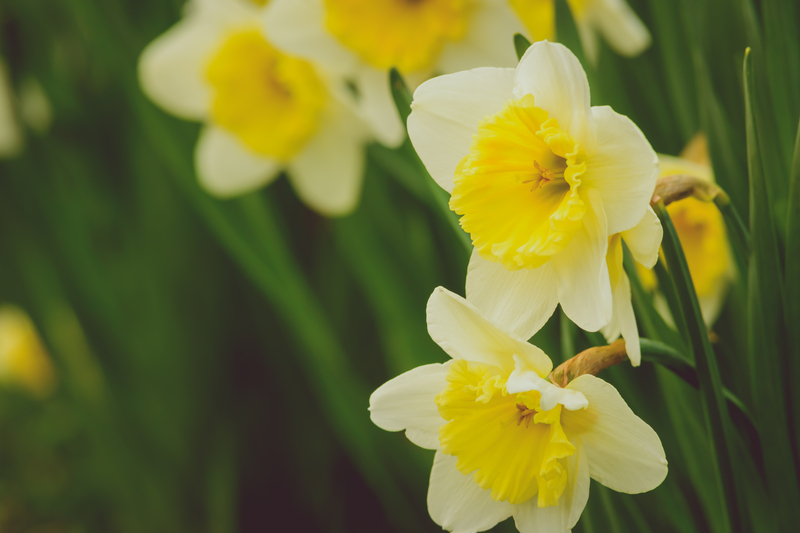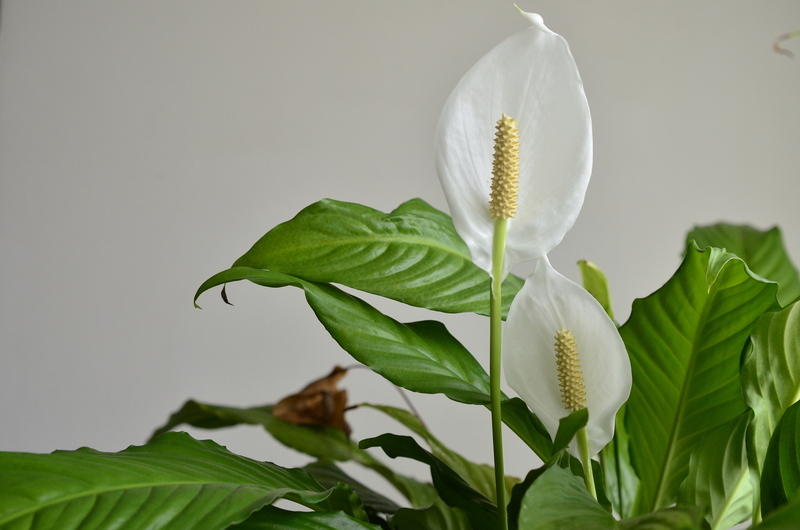9 Essential Strategies for New Gardeners
Posted on 24/05/2025
9 Essential Strategies for New Gardeners
Starting a garden can seem daunting, especially if you're new to the world of plants and soil. However, with the right guidance, tips, and determination, any beginner can create a thriving and beautiful outdoor space. Whether you want to grow vegetables, flowers, or herbs, following effective strategies will save time, money, and effort.
In this comprehensive article, we'll walk you through the 9 essential strategies for new gardeners to help you establish a flourishing garden from scratch. Let's dig in!
1. Start Small and Plan Wisely
It's easy to get carried away and dream about a vast, vibrant garden overnight. However, one of the best gardening strategies for beginners is to start small. Choose a manageable plot or a few containers. Focus on understanding the basics before you commit to a larger area. This reduces overwhelm and allows you to devote time to each plant, learning as you go.
- Evaluate your space: Observe how much light the area receives, check for wind exposure, and note existing structures or trees.
- Decide what you want to grow: Are you interested in vegetables, flowers, or both? Make a list of your top choices.
- Sketch your garden: Planning on paper helps visualize layout, spacing, and rotational needs for crops.
*Remember*: Growing a simple, small garden is better than a large, unmanageable one.

2. Choose the Right Location for Your Garden
A successful garden starts with location. Most plants, especially vegetables and many flowers, require at least 6 hours of direct sunlight per day. Shaded areas are better for shade-loving plants like ferns and hostas.
Conduct a simple garden site analysis:
- Watch the movement of the sun throughout the day.
- Check for pooling water after rain, which may signal drainage issues.
- Avoid areas with lots of root competition or aggressive weeds.
Tip: If your yard has poor sunlight, consider container gardens that can be moved, or select plants that thrive in partial shade.
3. Test and Prepare Your Soil
Soil is the foundation of every garden. Poor soil leads to weak plants and disappointing harvests, so understanding your soil type is crucial. Beginner gardeners often underestimate the importance of soil preparation.
- Use a simple test kit or send a sample to a local extension office to check pH and nutrient levels.
- Amend your soil with organic matter like compost, manure, or leaf mold. These increase fertility and improve structure.
- Remove weeds, rocks, and debris to give roots room to grow.
- For containers, always use high-quality potting mix instead of garden soil for better drainage and aeration.
A healthy, well-prepared soil sets the stage for every other gardening success.
4. Select Easy-to-Grow Plants
When you're beginning your gardening journey, choose plants that are known for their resilience and ease of growth. Starting with the right varieties builds your confidence and reduces frustration.
- Vegetables: Radishes, lettuce, bush beans, tomatoes, and zucchini.
- Herbs: Basil, mint, parsley, and chives.
- Flowers: Marigolds, zinnias, sunflowers, and cosmos.
Check your plant hardiness zone to choose varieties suited to your climate. Resistant and native species often perform better with less care.
5. Master Proper Watering Techniques
Watering is one of the most essential gardening strategies for beginners.
Both overwatering and underwatering can harm your plants, so learning the right approach is vital.
- Water early in the morning to minimize evaporation and prevent disease.
- Always water the soil, not the leaves, to avoid fungal issues.
- Check soil moisture by sticking your finger 1-2 inches below the surface.
- Install a rain gauge to track natural rainfall, especially for in-ground gardens.
Remember: Most vegetables and annuals require about 1 inch of water per week, either from rain or irrigation.
6. Keep Weeds and Pests Under Control
Weeds compete with your garden for water, nutrients, and light. Pests can quickly destroy young plants if left unmanaged. Beginner gardeners must learn to manage these challenges proactively.
Weeding Tips:
- Mulch! A 2-3 inch layer of organic mulch around plants suppresses weeds, retains moisture, and adds nutrients.
- Hand-pull weeds regularly before they set seed.
- Use cardboard or newspaper under mulch for extra weed barrier.
Pest Control:
- Encourage beneficial insects by growing companion plants.
- Inspect your garden regularly for signs of trouble--chewed leaves, sticky residue, or unusual spots.
- Use neem oil, insecticidal soap, or homemade sprays for organic control.
*Tip:* Rotate crops each season to prevent soil-borne pests and diseases from becoming established.
7. Feed Your Plants for Lush Growth
Just like people, your plants need regular meals for robust health. New gardeners can achieve great results by learning the basics of feeding their gardens.
- Apply compost or slow-release organic fertilizers at time of planting, according to the needs of each crop.
- Observe your plants: Yellowing leaves, weak growth, or poor flowering often signal a nutrient deficiency.
- Top-dress garden beds mid-season with additional compost or mulch to maintain fertility.
Don't over-fertilize, as this can harm plants and pollute local waterways.
8. Keep a Garden Journal
Tracking your gardening experience is one of the most valuable strategies for beginners. Keeping a garden journal helps you remember:
- Planting dates and varieties
- Weather patterns and rainfall
- What worked and what didn't
Over time, these notes will help you plan and improve future gardens. It's also gratifying to look back at your progress!

9. Be Patient and Keep Learning
Gardening is a journey--a lifelong practice of observation and learning. Even experienced gardeners learn new tricks every season. In your first year, expect a few surprises or setbacks. Don't get discouraged.
- Join local gardening groups or online communities for support.
- Visit public gardens for ideas and inspiration.
- Read books and reputable gardening websites to deepen your knowledge.
*Patience is the first lesson in every gardener's book*--sometimes things don't go as planned, but much of the joy is in the process.
Conclusion: Your Path to Gardening Success
With these 9 essential strategies for new gardeners, you're well equipped to create a rewarding green space, whether big or small. Remember to start small, select the right location, prepare your soil, and choose easy plants. Stay on top of watering, weeding, and feeding routines. Harness the power of a garden journal and, most importantly, embrace patience and continuous learning.
By following these professional tips and best practices, you'll see your hard work bloom and taste the delicious rewards of your efforts. Happy gardening!
- Related searches:
- Gardening tips for beginners
- Essential gardening techniques for new gardeners
- How to start your first garden
- Best plants for first-time gardeners
- Outdoor gardening advice
Latest Posts
Curating a Creative and Safe Garden for Your Kids
Vertical Gardening: Elevate Your Home's Aesthetics
Discover the Joy of Herb Gardening

